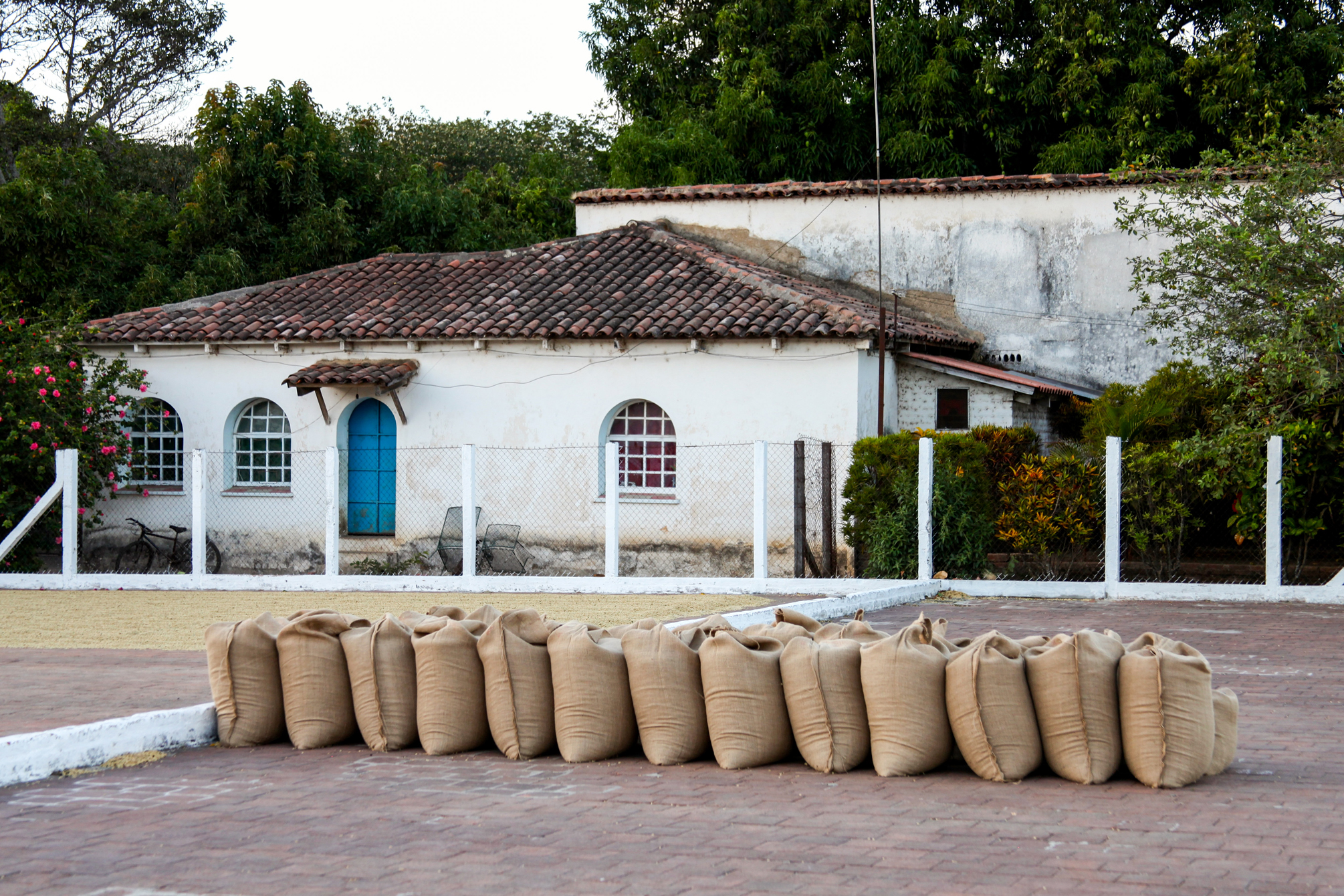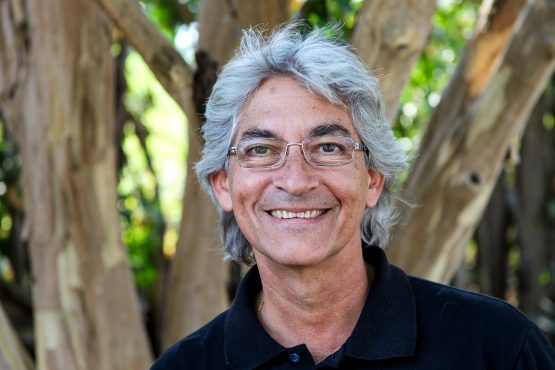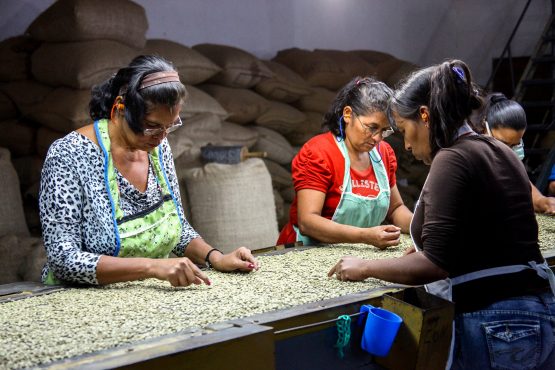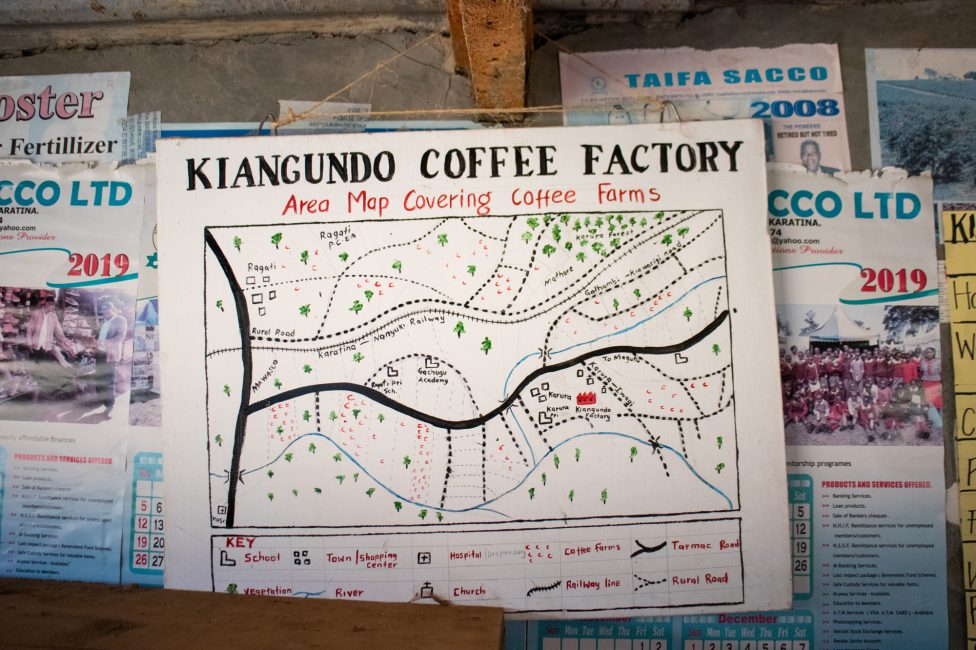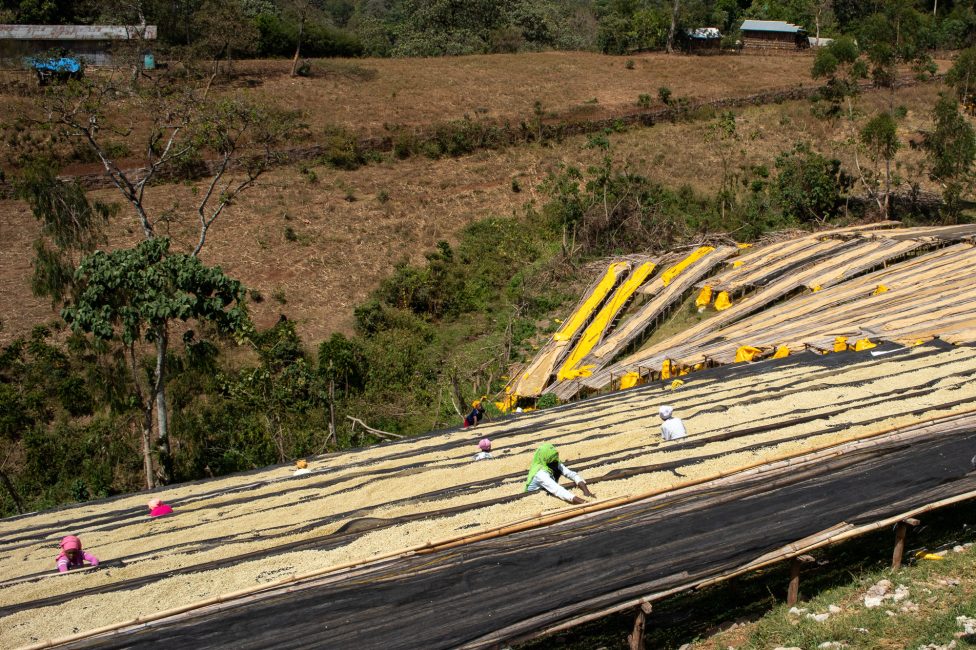El Borbollon
Smooth mouthfeel, toffee sweetness, orange acidity, with notes of milk chocolate, currants and vanilla and a lingering caramel finish.
The Alvarez family have been growing coffee in El Salvador for over 100 years and across four generations. Their award-winning farms are located on the lush, green hills of Santa Ana, in the west of the country, where the rich volcanic soils and mild climate provide ideal conditions for growing specialty coffee. The beans which together make up El Borbollon, come from two small farms – La Reforma and Santa Maria. They are hand-picked and collected in traditional hand-woven baskets from December until March by pickers who have been specially trained to select only the best and fully mature coffee cherries.
Finca La Reforma and Finca Santa Maria were established by Rafael Alvarez Lalinde in 1892 on the rich, humid slopes of the Santa Ana Volcano. Originally from Colombia, Don Rafael immigrated into the region, bringing some of his best coffee seeds with him to begin a new legacy for coffee production. Four generations later his decedents still own and manage this pair of small neighbouring famers – originally part of this initial farm, which was broken up for inheritances – on the fertile slopes of the Santa Ana volcano.
The Alvarez Diaz brothers are the fourth generation to farm coffee in this exceptional region. Following their father’s footsteps, both farms to this day are planted solely with Red Bourbon variety coffee trees, demonstrating the family’s commitment to quality in the cup, even in the face of El Salvador’s recent struggles with coffee leaf rust, to which Bourbon trees are particularly susceptible. The family is experimenting with orange and yellow Bourbon, but plant to only stick with this single varietal.
The trees are cultivated under native shade, which improves and conserves the soil and provides habitation for birds and are managed according to a stringent pruning schedule that maintains the health of the trees and improves their resistance to diseases and insect damage. The excellent growing conditions and the commitment to sustainable growing practices has helped the family to harvest high quality coffee consistently.
Unlike many estates in El Salvador, El Borbollon has its own wet mill and drying mill which means they are able to control the quality of their coffee from harvest to export. This is quite unique in El Salvador; most farms currently rely on external wet and dry mills to get their coffee processed. As a result, the Alvarez family is able to separate and process its coffees by variety and picking day, and is able to more closely monitor quality control and influence the quality of the end product.
The El Borbollon mill is managed by Eduardo Alvarez, whose father (also called Eduardo) bequeathed to him a passion for growing coffee and inspired him to always strive for the best possible quality. Under Eduardo’s direction, the mill has increasingly accessed specialty markets and has provided key technical assistance and guidance to the farms with which they work. This hard work and advocacy has enabled many of these farms to be placed in the Cup of Excellence competition. Of the 15 high altitude farms with which El Borbollon works, 10 have won places in the Cup of Excellence competition. 4 of these, including La Reforma, have have the CoE Presidential award for achieving scores in excess of 90 points.
Eduardo manages activities at the mill to complement the natural potential of the coffees that he and other farms in the region produce. All their coffees are pulped without water and then fermented for 16-20 hours. The coffee is then washed in clean, fresh water to remove all traces of mucilage. The parchment coffee is moved to the mill’s expansive clay patios, where it is slowly sun-dried and regularly turned by hand.
Clay patios are traditional in this region, and Eduardo prefers them to the more modern concrete patios as clay is endothermic (absorbs heat) and, thus, very good at regulating temperature. Coffees dried this way dry very slowing (a minimum of 9 – 10 days) and evenly. Eduardo’s experience has shown that the longer the drying time, the better the cup, and the mill has even been experimenting with increasing the drying time further through partial sun drying for small lots, where the coffee is placed on area of the patios that only receives 4-5 hours of sunlight a day.
This meticulous attention to detail shown at every stage of production – from harvesting to wet milling to cupping – has enabled the family to survive the many struggles that the coffee industry in El Salvador has suffered in the last 2 decades and has also inspired neighbouring farms to invest in the quality of their production. According to Eduardo, there is no other option – coffee runs – ‘in his blood’ and he and his family could never leave it, so this is the only way forward. However, as El Savador’s coffee industry and production continue to diminish in the face of coffee leaf rust and lack of governmental support, efforts such as his may prove to be critical to the survival some of the most notable coffees that Central America has to offer. His son certainly things so. The third consecutive Eduardo Alvarez, 29 years old, has recently joined the company as Operations Manager and looks forward to carrying the torch through the sixth generation!
The Alvarez family’s farms and mill offers considerable social support to local communities and have recently been working with a local NGO to help tackle child malnutrition in rural communities. The Alvarez family offer considerable support to local communities, with schools for children aged from five to 15 years and health clinics provided free on their farms.
This lot is a wonderful mix of the best pickings from late in the harvest (May/June). It is has a lovely balanced and well rounded cup profile, with notes of cooked fruit, candied orange and dark chocolate, and intense caramel sweetness. Perfect for espresso.
